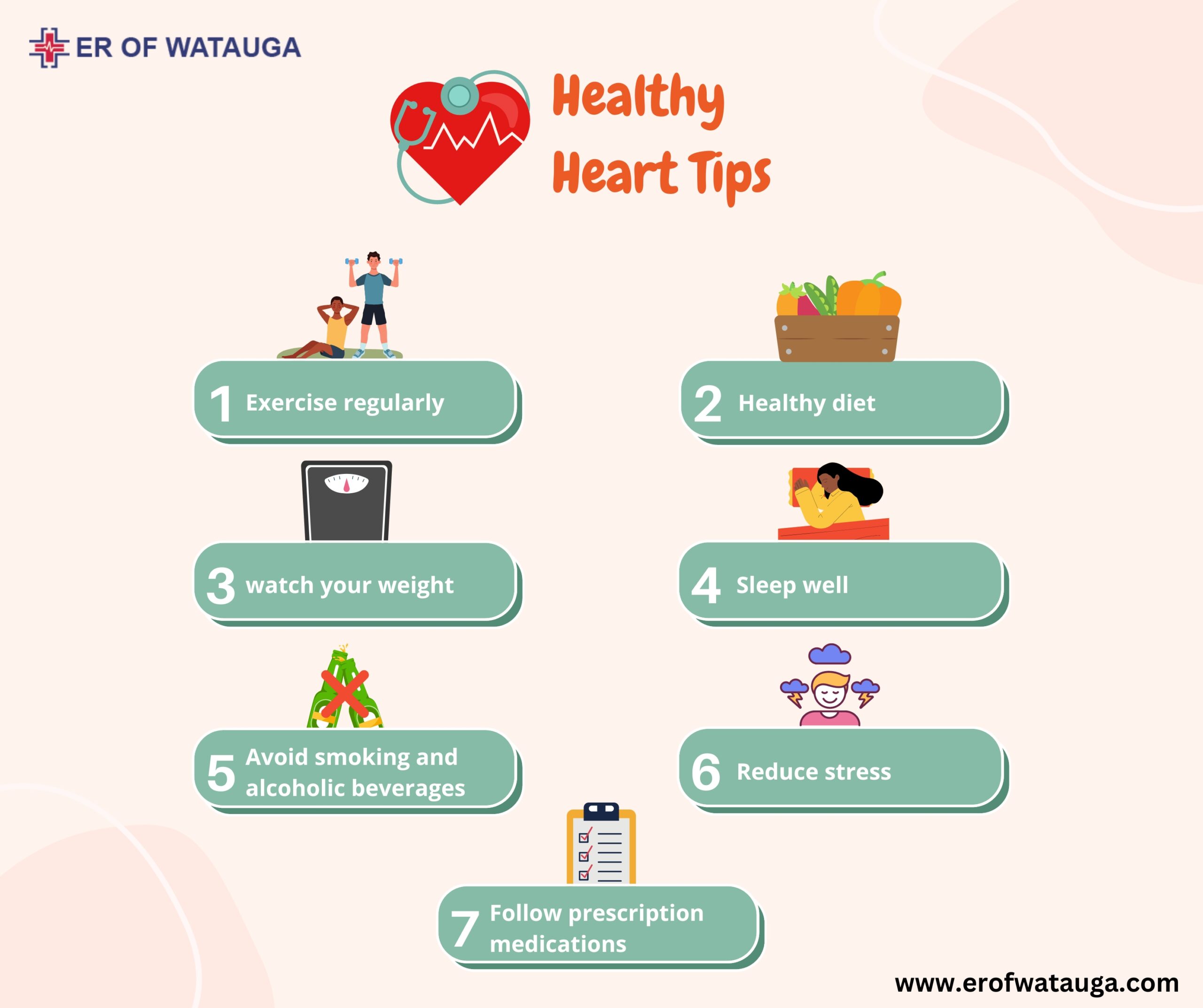
Research claims that one person in the US passes away from heart disease every 34 seconds. Because the heart is a crucial organ that pumps blood to the body’s other organs, giving them nutrition and oxygen, heart health is essential. A variety of significant medical disorders, including heart disease, heart attacks, and strokes, can be brought on by poor heart health. Maintaining a healthy lifestyle can help prevent chronic illnesses and improve general well-being. Such healthy lifestyle practices include frequent exercise, a balanced diet, and abstaining from smoking and excessive alcohol consumption.
What Happens If You Do Not Care About Your Heart Health?
The heart is the most significant and crucial body organ whose health should be prioritized by every human. If you do not care for your heart health, it can lead to various health problems, which can be the following.
- It contributes to heart disease, a term for many diseases impairing the heart’s ability to pump blood. Chest pain, exhaustion, and shortness of breath might produce some symptoms.
- Over time, neglecting your heart health can cause high blood pressure. It can also harm your organs and blood vessels and raise your chance of developing heart disease, stroke, and other health issues.
- An unhealthy diet and lifestyle choices can also raise cholesterol levels. Hence, it can increase the risk of heart disease and stroke by causing the formation of plaque in the arteries.
- Heart attacks and strokes are fatal. Poor heart health is one of the major causes of heart attacks and strokes.
- Diabetes is a condition that impairs insulin production or utilization by the body. Heart disease is just one of the issues it might lead to.
Taking care of your heart health through healthy lifestyle habits can help prevent these conditions and promote overall well-being.
How Can I Make My Heart Healthy? Tips for a Healthy Heart
Here are some useful tips for heart health:
-
Consume Heart-healthy Foods
Heart disease and other health issues can be reduced with a balanced diet. Your diet should enrich with fruits, vegetables, whole grains, lean protein, and healthy fats. Keep processed and high-fat foods to a minimum.
-
Regular Exercise
Regular exercise can help maintain a healthy weight and lower blood pressure. Additionally, it also lowers the risk of heart disease and enhances heart health. Aim for 150 minutes or more per week of moderate-intensity exercise.
-
Stop Smoking
Smoking increases the risk of developing heart disease, stroke, and other illnesses. Smoking cessation can lower the risk of disease and enhance heart health.
-
Keep your weight in check
The risk of heart and other diseases might rise if a person is overweight or obese. This risk can be decreased by eating right and exercising regularly to maintain a healthy weight.
-
Control your stress
Chronic stress might make heart disease and other health issues more likely. Use relaxation methods to reduce your stress levels, such as yoga, deep breathing, or meditation.
-
Get enough sleep
Sleeping poorly or not enough might increase your chances of developing diabetes, high blood pressure, and other health issues. Attempt to get 7-8 hours of sleep each night.
-
Check your cholesterol and blood pressure frequently
High blood pressure and high cholesterol make heart disease and other health issues more likely. Regularly monitor your levels and, if necessary, take action to manage them.
-
Limit your alcohol intake
Drinking too much alcohol might increase your risk of developing heart disease, high blood pressure, and other health issues. Limit your daily alcohol consumption to one or two drinks.
FAQs
-
How do I know if I have high cholesterol?
High cholesterol does not have any specific symptoms. So, the only way to know for sure if you have high cholesterol is to go for a blood test. This test, called a lipid panel or lipid profile, measures your cholesterol levels, including your total cholesterol, LDL cholesterol (bad cholesterol), HDL cholesterol (good cholesterol), and triglycerides. It is recommended that all adults get their cholesterol levels checked at least once every five years.
-
How can I check if my heart is healthy?
There are several ways to check if your heart is healthy:
- Get regular check-ups
- Monitor your blood pressure
- Check your cholesterol levels
- Stay physically active
- Maintain a healthy diet
- Manage stress
- Avoid smoking
-
Which foods are good for the heart?
Several foods are good for the heart, including:
- Fruits and vegetables are high in fiber, vitamins, and minerals and low in calories.
- Choose whole-grain bread, pasta, and rice over refined grains.
- Fatty fish, such as salmon and tuna, are high in omega-3 fatty acids. They can help reduce heart disease risk.
- Aim for a handful of nuts or seeds per day.
- Legumes, including beans, lentils, and chickpeas, are high in protein, fiber, and other nutrients that can help lower your risk of heart disease.
- Consume low-fat milk, yogurt, and cheese to help lower your saturated fat intake.
- Consume healthy fats, such as olive oil, avocado, and nuts, over-saturated and Trans fats.
-
How can I lower my blood pressure?
Here are some tips to lower blood pressure.
- Maintain a healthy weight
- Follow a healthy diet
- Reduce sodium intake
- Exercise regularly
- Limit alcohol consumption
- Manage stress
- Take medicine as prescribed






